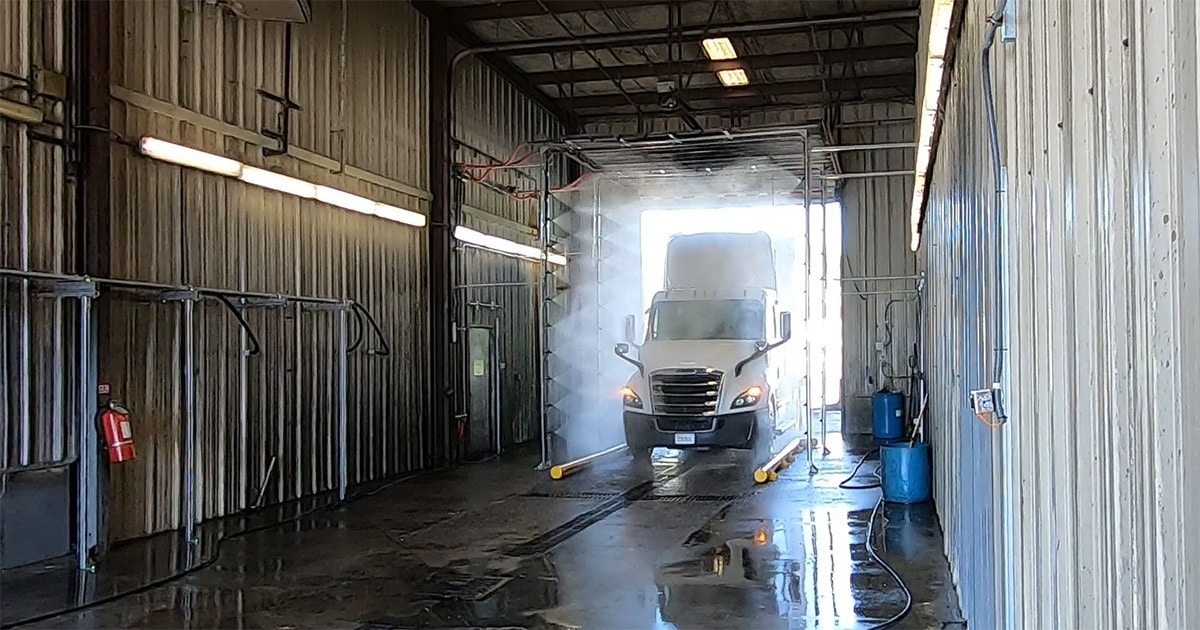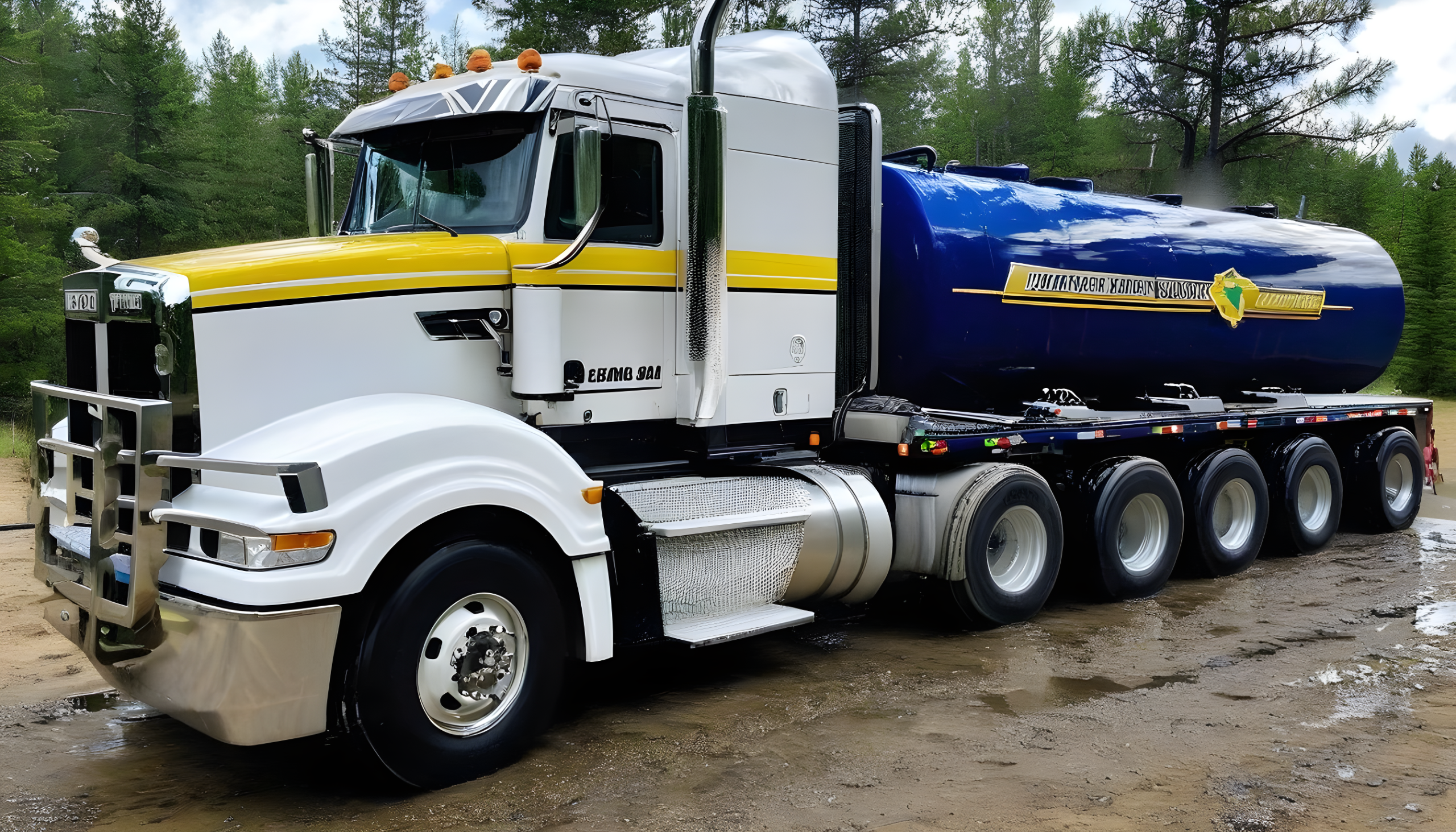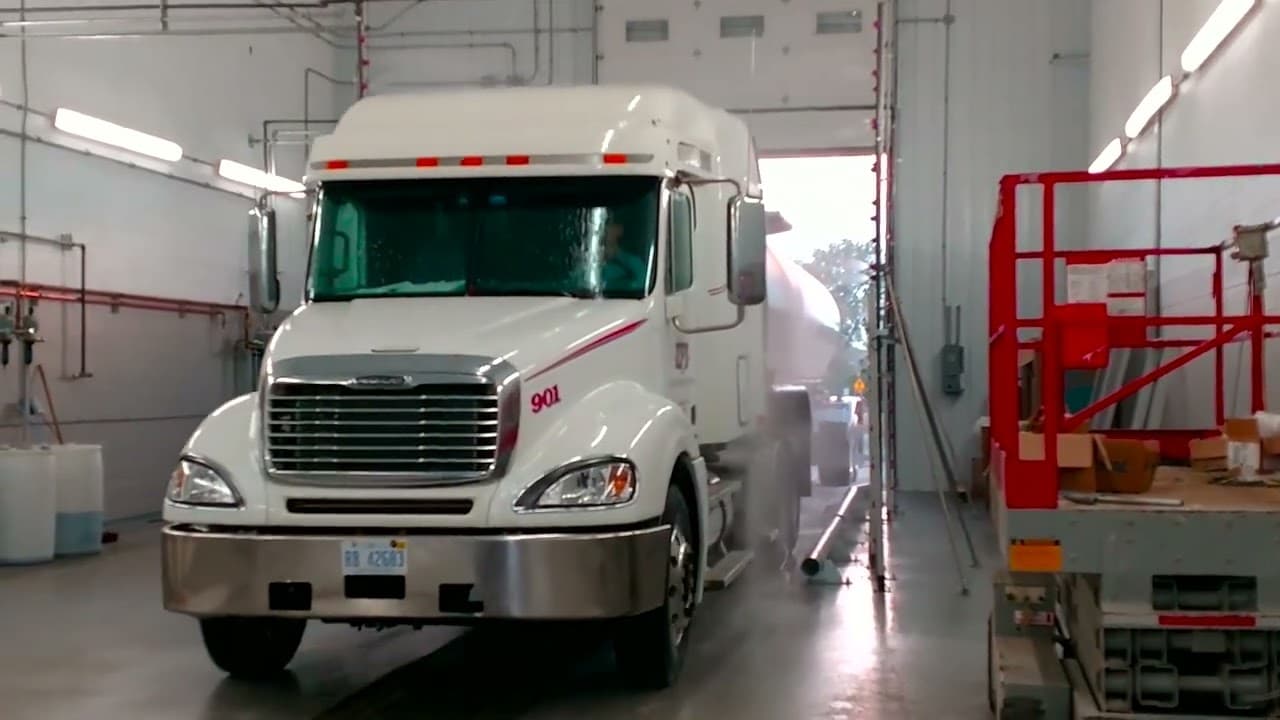As the demand for efficient and effective truck, bus, RV, and commercial vehicle washing continues to grow, it’s essential to choose the best automatic wash type to meet your needs. In 2024, the two primary options worth considering are touchless and friction wash systems.
With their advanced technology and gentle cleaning approach, touchless wash systems have gained popularity among vehicle owners. By utilizing high-pressure water jets and specialized detergents, these systems can effectively remove dirt, grime, and road salt without causing damage to the vehicle’s surface.
On the other hand, friction wash systems rely on brushes or cloth strips to physically scrub the vehicle’s exterior. These systems provide a more thorough clean by agitating the dirt particles and reaching areas that high-pressure water alone may miss.
When choosing between touchless and friction wash systems, it’s important to consider factors such as the size and type of vehicles you need to wash, cleaning effectiveness, cost, and maintenance requirements.
In this article, we will compare the two automatic wash types in detail, allowing you to make an informed decision based on your specific needs and preferences. Whether you prioritize convenience, efficiency, or overall cleaning performance, read on to find the best wash system for your truck, bus, RV, or commercial vehicle in 2024.
Understanding Touchless Automatic Wash Systems
Touchless automatic wash systems are designed to clean vehicles without physically touching them. These systems use high-pressure water jets, along with specialized detergents, to remove dirt and grime from the vehicle’s surface. The process begins with a pre-soak, where the detergent is applied to the vehicle, followed by a high-pressure rinse to remove the dirt particles.
One of the main advantages of touchless wash systems is their ability to clean without causing any damage to the vehicle’s exterior. Since there is no physical contact between the vehicle and the cleaning equipment, there is a significantly lower risk of scratches or paint damage. This makes touchless wash systems particularly attractive to owners of high-end vehicles who want to maintain the pristine condition of their vehicles.
Additionally, touchless wash systems are known for their speed and efficiency. The high-pressure water jets can cover a large surface area quickly, allowing for a faster cleaning process compared to friction wash systems. This makes touchless wash systems an excellent choice for commercial vehicle washing facilities that need to handle a high volume of vehicles daily.
However, touchless wash systems do have some limitations. While they are effective at removing dirt and grime, they may struggle with more stubborn stains or dried-on debris. Additionally, touchless wash systems are not as thorough as friction wash systems when it comes to agitating and removing dirt particles from hard-to-reach areas, such as the crevices and contours of a vehicle’s exterior.

Pros and Cons of Touchless Automatic Wash Systems
Pros:
- Gentle on the vehicle’s surface: Touchless wash systems use high-pressure water jets and specialized detergents to clean the vehicle’s exterior without causing any damage or scratches.
- Fast and efficient: The high-pressure water jets cover a large surface area quickly, making touchless wash systems ideal for high-volume washing facilities.
- Ideal for high-end vehicles: Owners of high-end vehicles can trust touchless wash systems to clean their vehicles without compromising their appearance.
Cons:
- Limited effectiveness against stubborn stains: Touchless wash systems may struggle with more stubborn stains or dried-on debris.
- Not as thorough in hard-to-reach areas: While effective overall, touchless wash systems may not be as thorough as friction wash systems when it comes to agitating and removing dirt particles from hard-to-reach areas.
- Higher initial cost: Touchless wash systems tend to be more expensive to install compared to friction wash systems.
Understanding Friction Automatic Wash Systems
Friction automatic wash systems, as the name suggests, rely on physical contact between the vehicle and cleaning equipment to remove dirt and grime. These systems typically use brushes or cloth strips that rotate or move along the vehicle’s surface, agitating the dirt particles and providing a thorough clean.
One of the main advantages of friction wash systems is their ability to remove stubborn stains and dried-on debris effectively. The physical contact between the brushes or cloth strips and the vehicle’s surface allows for a more thorough cleaning process, ensuring that even the toughest dirt particles are removed.
Additionally, friction wash systems excel at reaching and cleaning hard-to-reach areas, such as the crevices and contours of a vehicle’s exterior. The rotating brushes or cloth strips can agitate the dirt particles and reach areas that high-pressure water alone may miss. This makes friction wash systems particularly suitable for vehicles that are regularly exposed to off-road conditions or heavy dirt buildup.
However, it’s essential to note that friction wash systems do carry a higher risk of potentially causing scratches or swirl marks on the vehicle’s surface. While modern friction wash systems are designed to minimize this risk, it’s crucial to ensure that the brushes or cloth strips are in good condition and regularly maintained to avoid any potential damage.

Pros and Cons of Friction Automatic Wash Systems
Pros:
- Effective against stubborn stains: Friction wash systems excel at removing stubborn stains and dried-on debris from the vehicle’s surface.
- Thorough cleaning in hard-to-reach areas: The rotating brushes or cloth strips of friction wash systems can agitate dirt particles and reach areas that high-pressure water alone may miss.
- Suitable for off-road or heavy dirt buildup: Friction wash systems are particularly suitable for vehicles that are regularly exposed to off-road conditions or heavy dirt buildup.
Cons:
- Risk of potential scratches or swirl marks: Friction wash systems carry a higher risk of potentially causing scratches or swirl marks on the vehicle’s surface, especially if the brushes or cloth strips are not properly maintained.
- Slower cleaning process: Compared to touchless wash systems, friction wash systems may take longer to clean a vehicle due to the physical contact required.
- Higher maintenance requirements: Friction wash systems require regular maintenance to ensure the brushes or cloth strips are in good condition and do not cause any damage to the vehicle’s surface.
Factors to Consider When Choosing Between Touchless and Friction Automatic Wash Systems
When deciding between touchless and friction wash systems, several factors need to be considered to make an informed decision based on your specific needs and preferences. These factors include:
- Vehicle type and size: Consider the size and type of vehicles you need to wash. Larger vehicles, such as buses or RVs, may require the thorough cleaning provided by friction wash systems, while touchless systems may be more suitable for smaller vehicles.
- Cleaning effectiveness: Evaluate the level of cleaning effectiveness required for your vehicles. If you regularly encounter stubborn stains or heavy dirt buildup, friction wash systems may be the better choice. However, if you prioritize a gentle cleaning approach without compromising the vehicle’s appearance, touchless wash systems could be the preferred option.
- Cost considerations: Assess the initial installation cost, as well as ongoing maintenance and operating costs. Touchless wash systems tend to have a higher initial cost, but they may require less maintenance compared to friction wash systems.
- Maintenance requirements: Consider the maintenance requirements of each wash system. Friction wash systems typically require more regular maintenance, including the replacement of brushes or cloth strips, to ensure optimal cleaning performance without causing any damage to the vehicle’s surface.
- Time efficiency: Evaluate the time efficiency required for your washing facility. Touchless wash systems are generally faster and more suitable for high-volume washing facilities, while friction wash systems may provide a more thorough clean but could take longer to complete the washing process.
By carefully considering these factors, you can determine the best automatic wash type for your specific needs and preferences.
Case Studies: Successful Implementation of Touchless Automatic Wash Systems
To provide real-world examples of successful touchless automatic wash system implementation, let’s explore two case studies:
- Case Study 1: XYZ Trucking Company
XYZ Trucking Company, a leading transportation company, implemented touchless automatic wash systems across their fleet of delivery trucks. They chose touchless wash systems due to their ability to provide a gentle and efficient cleaning process without causing any damage to the company’s branded vehicle wraps. The touchless wash systems allowed XYZ Trucking Company to maintain the professional appearance of their fleet while ensuring rapid turnaround times for their trucks. - Case Study 2: ABC RV Rental
ABC RV Rental, a popular RV rental company, incorporated touchless automatic wash systems into their vehicle cleaning process. The touchless wash systems enabled ABC RV Rental to provide a thorough and consistent cleaning experience for their customers, ensuring that each rental RV was in pristine condition. The gentle yet effective cleaning approach of the touchless wash systems allowed ABC RV Rental to maintain the appearance and value of their rental fleet.
Case Studies: Successful Implementation of Friction Automatic Wash Systems
Now, let’s explore two case studies that highlight the successful implementation of friction automatic wash systems:
- Case Study 1: DEF Bus Company
DEF Bus Company, a large public transportation provider, opted for friction automatic wash systems to clean their fleet of buses. The friction wash systems proved highly effective in removing the heavy dirt buildup that the buses encountered during their daily routes. Additionally, the ability of the brushes to reach and clean hard-to-reach areas ensured that DEF Bus Company could maintain a high standard of cleanliness for their buses. - Case Study 2: GHI Construction Company
GHI Construction Company, a construction company specializing in off-road projects, integrated friction automatic wash systems into their vehicle maintenance routine. The construction vehicles often faced extreme dirt and mud buildup, requiring a thorough cleaning solution. The friction wash systems provided the necessary cleaning power to remove the toughest dirt particles, ensuring that GHI Construction Company’s vehicles were ready for the next project.
Choosing the Best Automatic Wash Type for Your Specific Needs
After understanding the benefits and limitations of touchless and friction wash systems, along with considering the relevant factors, it’s time to make an informed decision for your truck, bus, RV, or commercial vehicle washing needs.
If you prioritize a gentle cleaning approach, have high-end vehicles, or require a fast and efficient cleaning process, touchless wash systems may be the best fit for you. On the other hand, if you encounter stubborn stains, heavy dirt buildup, or have vehicles exposed to off-road conditions, friction wash systems can provide a more thorough clean.
Consider your vehicle type and size, cleaning effectiveness requirements, cost considerations, maintenance requirements, and time efficiency needs. By carefully evaluating these factors, you can choose the automatic wash type that will meet your specific needs and provide the best cleaning performance for your truck, bus, RV, or commercial vehicle.

Conclusion: Making an Informed Decision for Your Truck, Bus, RV, or Commercial Vehicle Washing Needs
In the ever-growing world of truck, bus, RV, and commercial vehicle washing, choosing the best automatic wash type is crucial to ensure efficient and effective cleaning. In 2024, touchless and friction wash systems are the primary options to consider.
Touchless wash systems offer a gentle yet efficient cleaning approach, making them suitable for high-end vehicles and high-volume washing facilities. Friction wash systems provide a more thorough clean, ideal for vehicles with stubborn stains, heavy dirt buildup, or off-road exposure. However, it’s important to consider factors such as vehicle type and size, cleaning effectiveness, cost, maintenance requirements, and time efficiency when making a decision.
By understanding the benefits and limitations of touchless and friction wash systems, evaluating the relevant factors, and considering real-world case studies, you can make an informed decision for your specific truck, bus, RV, or commercial vehicle washing needs. Choose wisely to ensure your vehicles are clean, well-maintained, and ready for the road ahead in 2024 and beyond.



